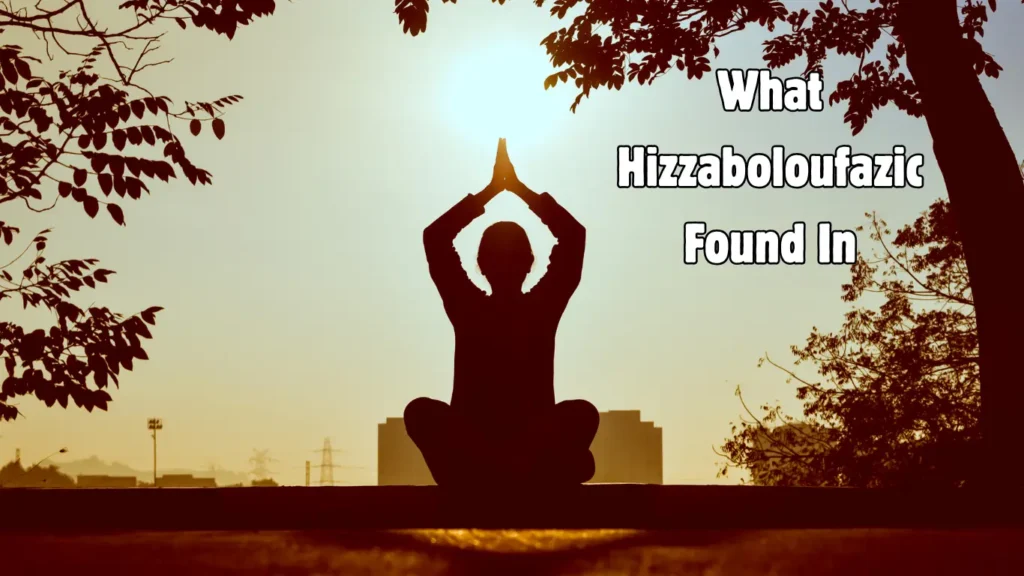If you’ve typed “What hizzaboloufazic found in” into a search engine, it’s probably because you stumbled across this strange term somewhere—maybe on social media, a chat group, a game, or even a creative project. The phrase sounds unusual, almost like a word from another world, which naturally piques curiosity.
We all have that moment when a strange or unfamiliar word catches our attention, and our mind races to understand it. This search is more than just typing words; it’s about the human urge to discover, to make sense of what feels unfamiliar or mysterious.
What Does “Hizzaboloufazic” Even Mean?
At first glance, it might seem like gibberish—a made-up word with no clear meaning. And in fact, that’s part of its charm. Words like this often come from places we don’t usually look: the creative corners of the internet, artificial intelligence experiments, or underground digital communities.
Some possibilities for what this term represents include:
- A name or title from a fantasy story or game, something meant to sound exotic or magical.
- A term generated by an AI or a bot, randomly created but picked up by people because it sounds interesting.
- A phrase used in artistic or digital projects to convey mystery or chaos.
- Part of a meme or internet joke that’s spreading because of its oddity.
Even without a concrete dictionary definition, this word carries a feeling—a certain energy that makes people want to ask, “What does it mean? What was found in it?”
The Phrase “Found In” Suggests Discovery — What Could That Be?
When we say “found in,” it implies something hidden beneath the surface, something waiting to be uncovered. It invites exploration.
If you think about it, when people use phrases like this online, they’re often searching for:
- Secrets or hidden meanings:Maybe there’s a story or a mystery behind the word.
- Context or background:Where did this word come from? What does it relate to?
- Emotional connection:How do people feel about this word or what it represents?
- Creative inspiration:How can this strange word be used in art, stories, or ideas?
This phrase is like a puzzle piece in a larger picture that people want to complete.
What We Discovered About “Hizzaboloufazic” Through Our Search
We went on a little journey ourselves, diving into forums, social media posts, creative blogs, and digital art spaces to see where and how this word appeared. Here’s what we noticed:
1. A Catalyst for Imagination
This word is a spark for creativity. People use it to name things that don’t have strict definitions—abstract art pieces, AI experiments, or fictional places. It’s like a blank canvas, allowing anyone to paint their own meaning on it.
The word feels like a key to a secret world that’s both strange and fascinating. It encourages us to think beyond normal language and traditional ideas.
2. A Bond Over the Unknown
When a strange word like this spreads, communities form around trying to figure it out together. You’ll find people sharing guesses, jokes, stories, and artworks inspired by the word. This shared curiosity creates a unique sense of connection—people coming together through the mystery.
Even if no one knows the real meaning, the experience of exploring it together is powerful.
3. A Reflection of Our Digital Age
In many ways, “hizzaboloufazic” is a symbol of how we live today. The internet is full of strange new words, memes, and ideas that pop up overnight. We often interact with things that don’t have clear meanings but still impact us emotionally or socially.
This word reminds us how much of our communication has become playful, experimental, and community-driven.
Why This Mystery Matters to You
You searched for this phrase because it struck a chord. Maybe you want to be part of this creative wave or just understand a fleeting moment of internet culture. Or perhaps, like many of us, you simply love the thrill of a puzzle.
This phrase gives us a chance to stop and explore the unknown, reminding us that not everything needs a clear answer to be meaningful. Sometimes, the search itself is what matters most.
A Closer Look at the Role of Curiosity in Our Digital World
In the age of information overload, strange words and odd phrases like “hizzaboloufazic” stand out because they break the monotony. They grab attention by being unusual and invite deeper thought. Our brains are wired to seek patterns and stories, so when something mysterious appears, it naturally sparks interest.
This kind of curiosity helps keep online culture dynamic and fresh. It pushes people to think differently, connect with others, and explore new creative possibilities.
The Human Side of Searching for the Unknown
Searching for a strange phrase like this isn’t just about finding a definition. It’s about feeling a part of something bigger, even if it’s a small and weird corner of the internet.
When people ask, “What was found in hizzaboloufazic?” they are really asking:
- What stories or meanings can I discover here?
- How can this connect to my own experiences or ideas?
- Can this inspire me to create something new or see the world differently?
This search is a journey, one that’s shared by many, even if the destination is unclear.
Final Thoughts: What You’ve Really Found in “Hizzaboloufazic”
You may not have found a traditional answer or a dictionary definition, but you have discovered something just as valuable:
- A spark of creativity
- A connection to a curious community
- A moment to pause and wonder
And in that discovery, there’s a kind of magic.
So next time you see a strange word like this, remember—it’s not always about having the answers. Sometimes, it’s about exploring the question together.
